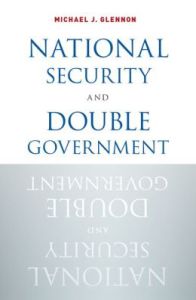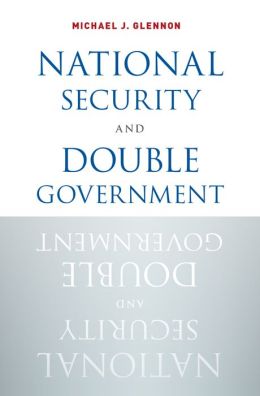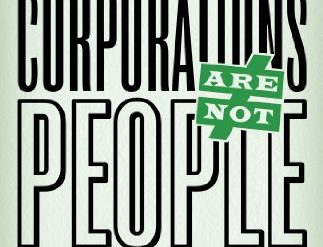
Why does Barack Obama’s performance on national security issues in the White House contrast so strongly with his announced intentions as a candidate in 2008? After all, not only has Obama continued most of the Bush policies he decried when he ran for the presidency, he has doubled down on government surveillance, drone strikes, and other critical programs. Michael J. Glennon set out to answer this question in his unsettling new book, National Security and Double Government. And he clearly dislikes what he found.
The answer, Glennon discovered, is that the US government is divided between the three official branches of the government, on the one hand — the “Madisonian” institutions incorporated into the Constitution — and the several hundred unelected officials who do the real work of a constellation of military and intelligence agencies, on the other hand. These officials, called “Trumanites” in Glennon’s parlance for having grown out of the national security infrastructure established under Harry Truman, make the real decisions in the area of national security. (To wage the Cold War, Truman created the Joint Chiefs of Staff, the Department of Defense, the CIA, the NSA, and the National Security Council.)
“The United States has, in short,” Glennon writes, “moved beyond a mere imperial presidency to a bifurcated system — a structure of double government — in which even the President now exercises little substantive control over the overall direction of U.S. national security policy. . . . The perception of threat, crisis, and emergency has been the seminal phenomenon that has created and nurtures America’s double government.” If Al Qaeda hadn’t existed, the Trumanite network would have had to create it — and, Glennon seems to imply, might well have done so.
National Security and Double Government by Michael J. Glennon ★★★★★
The Trumanites wield their power with practiced efficiency, using secrecy, exaggerated threats, peer pressure to conform, and the ability to mask the identity of the key decision-maker as their principal tools.
Michael J. Glennon comes to this task with unexcelled credentials. A professor of international law at Tufts and former legal counsel for the Senate Armed Services Committee, he came face to face on a daily basis with the “Trumanites” he writes about. National Security and Double Government is exhaustively researched and documented: two-thirds of this deeply disturbing little book consists of notes.
The more I learn about how politics and government actually work — and I’ve learned a fair amount in my 73 years — the more pessimistic I become about the prospects for democracy in America. In some ways, this book is the most worrisome I’ve read over the years, because it implies that there is no reason whatsoever to think that things can ever get better. In other words, to borrow a phrase from the Borg on Star Trek, “resistance is futile.” That’s a helluva takeaway, isn’t it?
Combating the menace of the military-industrial complex
On reflection, what comes most vividly to mind is a comment from the late Chalmers Johnson on a conference call in which I participated several years ago. Johnson, formerly a consultant to the CIA and a professor at two campuses of the University of California (Berkeley and later San Diego), was the author of many books, including three that awakened me to many of the issues Michael Glennon examines: Blowback, The Sorrows of Empire, and Nemesis. Johnson, who was then nearly 80 and in declining health, was asked by a student what he would recommend for young Americans who want to combat the menace of the military-industrial complex. “Move to Vancouver,” he said.
The mounting evidence notwithstanding, I just hope it hasn’t come to that.
This is one of the many Good nonfiction books about national security.
For related reading
You’ll gain additional perspective on this theme from Presidents in Crisis: Tough Decisions inside the White House from Truman to Obamaby Michael K. Bohn (An eye-opening plunge into Presidential decision-making).
Like to read books about politics and current affairs? Check out Top 10 nonfiction books about politics.
If you enjoy reading nonfiction in general, you might also enjoy:
- Science explained in 10 excellent popular books
- Great biographies I’ve reviewed: my 10 favorites
- My 10 favorite books about business history
And you can always find my most popular reviews, and the most recent ones, on the Home Page.



























